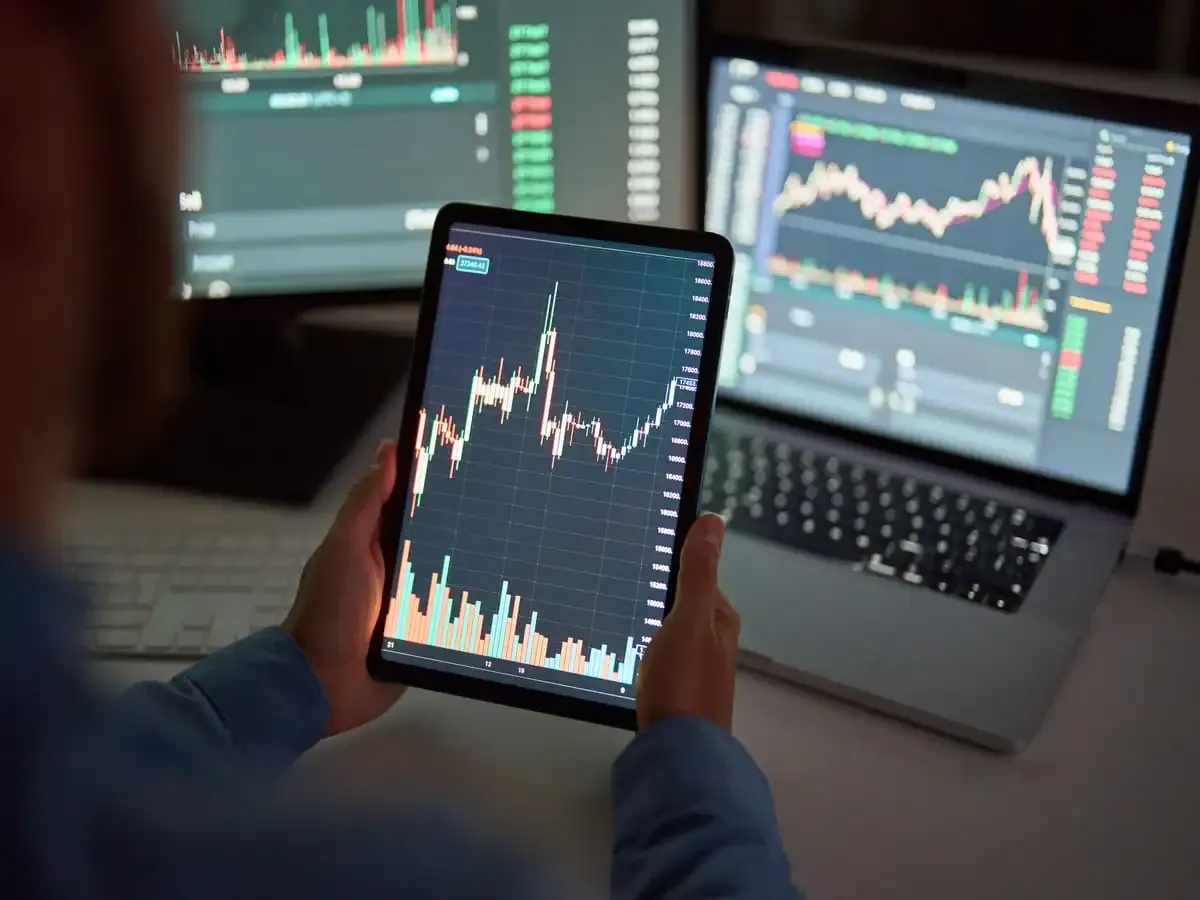Advantages and Disadvantages of Online Trading - Benefits & Importance
Written by Upstox Desk
Published on February 11, 2026 | 5 min read

Unless you’ve been living under a rock, you’d know we now trade securities such as stocks, bonds, mutual funds, ETFs, options, futures and currencies almost entirely online. It’s easy, and efficient. But that’s a high level perspective. In this post, we’ll zoom in the lens on online trading to bring you a clear picture about how it works, its benefits and how to trade online. After you learn about the basics and benefits of trading online, you can do it hassle-free through your brokerage's internet-based proprietary trading platform.
Key Points:
- Before the era of online trading, traders had to call and give ‘buy’ and ‘sell’ order to their brokerage firms to trade for them.
- With the advent of the internet in this digital era, the vast majority of traders have moved to online trading platforms.
- One of the most important advantages of online trading is that it gives you greater control over your investments.
What is Online Trading?
Before the era of online trading, traders had to call and give ‘buy’ and ‘sell’ order to their brokerage firms to trade for them. It used to be a very tedious process, and understandably caused many problems. Surprisingly, there are a few investors who still practice offline trading even today.
However, with the advent of the internet in this digital era, the vast majority of traders have moved to online trading platforms. You can place ‘buy’ and ‘sell’ orders, place market limits, put a stop-loss, check the status of an order, read news about companies, view the list of securities currently held through the dashboard, etc and you also have access to all your previous investment statements. Online trading has also reduced costs for both traders and investors.
Benefits of online trading:
- It eliminates the middleman: You can buy and sell without even speaking to your broker. This makes online trading alluring for someone who does not have the finances to work with full-service brokers.
- It’s cheaper and faster: When a broker executes your trades, it costs you more money. On the other hand, when you trade online, a brokerage charge is levied but it is always less than what a traditional broker who has to place a trade physically, would charge you. Online trading is almost instantaneous.
- It offers greater investor control: One of the most important advantages of online trading is that it gives you greater control over your investments. You can trade whenever you want with online trading during the trading hours and you can also take your own decision without any interference from the broker.
- You can monitor your investments in real time: Your online trading platform has a lot of advanced tools and interfaces to monitor your investing performance and to do your own research. You can see real time gains or losses whenever you login from your phone or computer.
How does online trading work?
When you buy or sell a stock through online trading, you order gets executed within seconds. But, within these seconds lots of operations take place which you are unaware, such as:
- Your order is registered.
- Your order is placed in a database
- It searches for a for a seller and when both buyer and seller is matched, a confirmation message is sent to both the parties.
- The order and the price are reported to the regulatory bodies. These regulatory bodies look over all the trading activities and are displayed to all the investors.
- Your trading records are stored in case regulators want to study your past transactions.
- A contract is sent to your broker who sold the shares and the broker who bought them.
- After all this, the brokers have 3 days to exchange the cash and shares which is called settlement.
- After this process, the money or the shares are officially in your account.
How do you trade online?
- Researching and Choosing a Stock: You should perform value research, technical analysis, try identifying patterns, understand short selling etc.
- Choosing a Brokerage Partner: You can see this article to learn how to choose the best broker.
- Learning to Trade Stocks: You can learn to trade through a trading account and a demat account easily.
- Making Smart Investment Decisions: Try to decide which stocks you can afford to trade, diversify your portfolio, research before you invest and buy good stocks at a low price.
Wrapping Up:
- You will be able to trade in the stock market efficiently after you go through the steps mentioned carefully.
- Start investing as soon as possible as there is no perfect time to invest.
- Be in touch with your broker to start trading after you decide which stock you want to buy. Before trading research properly on the stock.
About Author
Upstox Desk
Upstox Desk
Team of expert writers dedicated to providing insightful and comprehensive coverage on stock markets, economic trends, commodities, business developments, and personal finance. With a passion for delivering valuable information, the team strives to keep readers informed about the latest trends and developments in the financial world.
Read more from UpstoxUpstox is a leading Indian financial services company that offers online trading and investment services in stocks, commodities, currencies, mutual funds, and more. Founded in 2009 and headquartered in Mumbai, Upstox is backed by prominent investors including Ratan Tata, Tiger Global, and Kalaari Capital. It operates under RKSV Securities and is registered with SEBI, NSE, BSE, and other regulatory bodies, ensuring secure and compliant trading experiences.
























